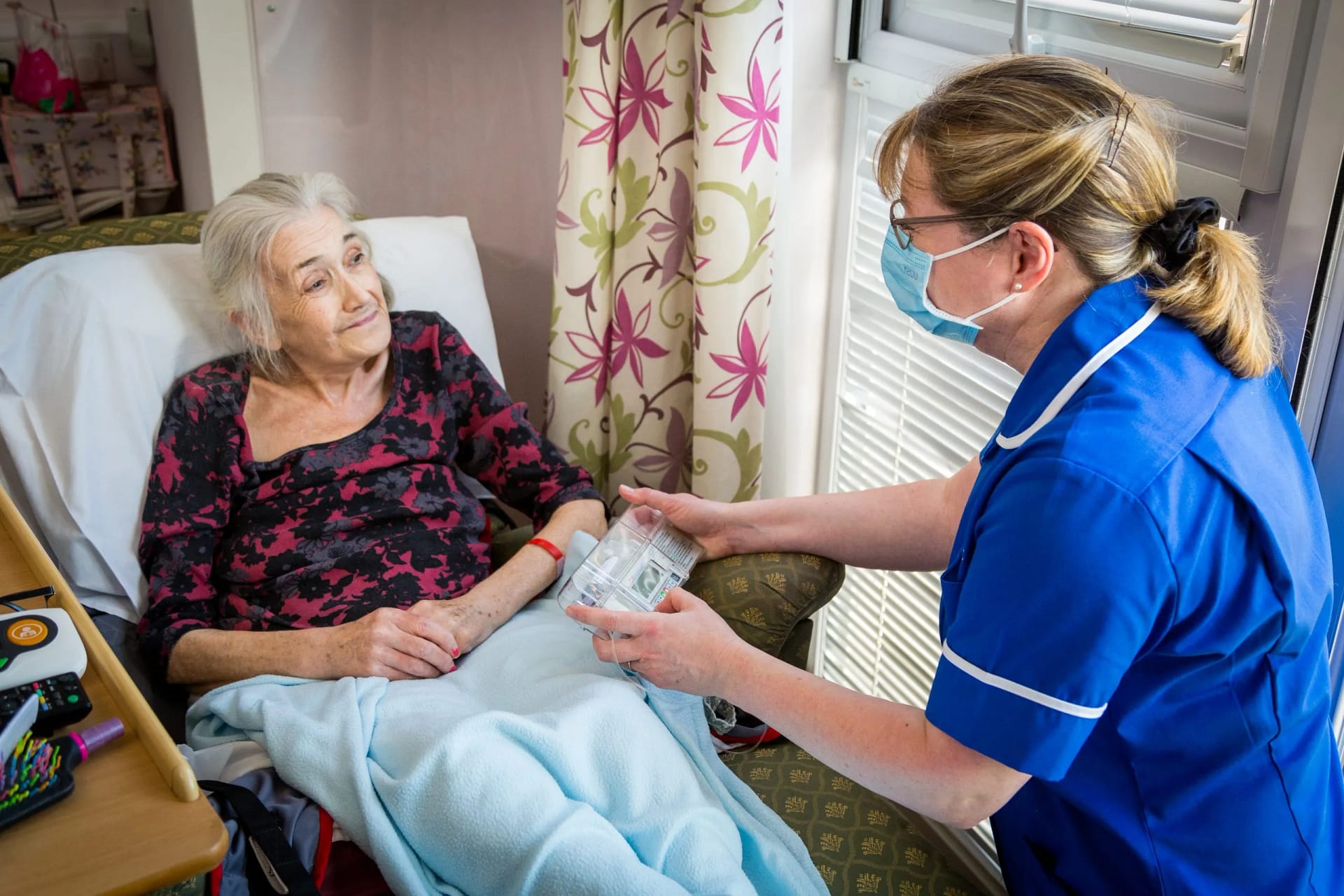Patient Care

Ensuring Quality Care
Hospice care can be provided in a private home, hospital, or assisted living facility. We will provide a team to focus on the patient’s specific needs and wishes in the comfort of their chosen residence.
Plan of Care
With the help of the patient’s hospice nurse and additional health care providers, this care team will create a specialized plan based on the patient’s needs. This plan can be updated according to new developments.
Your specialized care plan may include:
- Creating a routine to follow.
- Creating goals to achieve.
- Medical appointment scheduling.
- Regular visits or calls by your Hospice care team.
- Interventions on managing pain and symptoms.
- Activities to stimulate the mind and/or body.
- Medical supplies and appliances if needed (e.g., hospital bed, wheelchair, sanitizing wipes).
- A personal safety plan.
- A nutrition plan.


Hospice Care Team
Our team revolves around the patient. They will be assigned to a hospice care team of specialists. This team may include:
- Hospice Medical Director
- Attending Physician
- Hospice Aide
- Registered Nurse
- Social Worker
- Chaplain
- Therapists
If needed, your team may also include:
- Trained Volunteers: Can help run errands, prepare meals, light housework, drive to medical appointments, and overall give the caretaker a break.
- Dietitians: Helps caretakers understand the patient’s food needs and changes.
- Grief counselors: Works to help guide family members suffering with grief and is available for 13 months after the death of the patient.
- Pharmacist: Reviews the medicine list and ensures the patient’s medicine plan is right. This medicine can be delivered to the patient.
Hospice Medical Director
Oversees overall medical care operations and ensures high-quality care. Monitors the patient’s plan of care and provides support to the care team.


Physician
Collaborates with the Medical Director to create the patient’s plan of care. Directs medical care to hospice patients and oversees all aspects of their care.
Hospice Aide
Provides companionship and assists the caretaker with the patient’s personal care. Light housework can be done to keep the living space clean and safe (e.g., bathing, feeding, laundry).


Registered Nurse
Assists with pain and symptom control while monitoring the patient’s needs. They provide the caretaker with necessary information on caring for and administering medication to the patient. Available on call 24/7 to assist the patient and family if needed. Works directly with the Hospice Medical Director.
Social Worker
Provides emotional support to both the patient and their family and can guide them towards other support. They can also help with managing finances, paying bills, and legal affairs.


Chaplain
Provides emotional and spiritual care tailored to the patient’s faith. They don’t necessarily have to be religious. They create a safe space and help the care team understand the patient better.
Therapists
Helps treat symptoms and increase comfort through therapy (e.g., occupational therapy, physical therapy, speech therapy). Therapy helps improve the patient’s quality of life and introduces more methods of relief.

